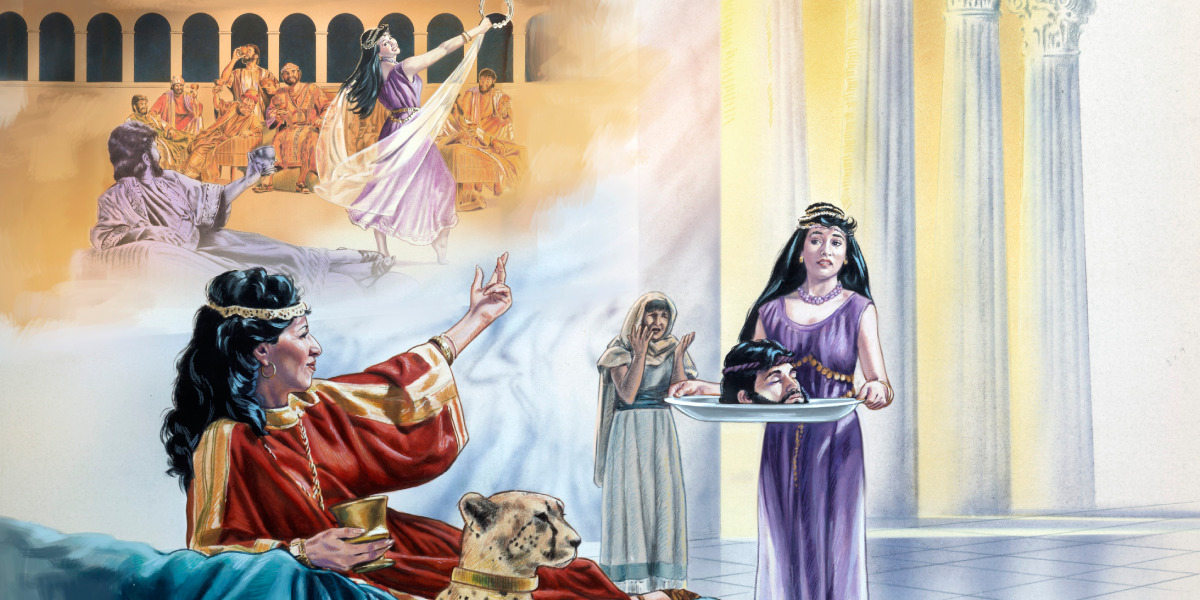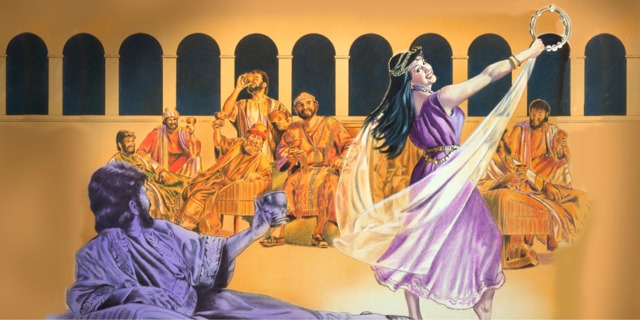Post by The Ambassador on Aug 31, 2019 12:52:04 GMT

Murder During a Birthday Party

While Jesus’ apostles are carrying out their ministry in Galilee, the one who introduced Jesus has no such liberty. John the Baptist is still in prison after almost two years.
John had openly declared that it was wrong for King Herod Antipas to take Herodias, the wife of his half brother Philip, as his own. Herod had divorced his first wife to marry Herodias. According to the Mosaic Law, which Herod claims to follow, this marriage is adulterous and illegal. In response to John’s reproof, Herod had John thrown into prison, perhaps at the urging of Herodias.
Herod is at a loss as to what to do with John, because the people ‘take him for a prophet.’ (Matthew 14:5) Herodias, though, feels no such indecision. She is “nursing a grudge against him,” and in fact, she keeps seeking to have him put to death. (Mark 6:19) Finally, the opportunity arises.
Shortly before the Passover of 32 C.E., Herod arranges a large celebration for his birthday. All of Herod’s top-ranking officials and army officers, as well as the leading citizens of Galilee, assemble for the party. During the festivities, Salome, the young daughter of Herodias by her former husband Philip, is sent in to dance for the guests. The men are enthralled by her performance.

Highly pleased with his stepdaughter, Herod says to her: “Ask me for whatever you want, and I will give it to you.” He even swears: “Whatever you ask me for, I will give it to you, up to half my kingdom.” Before answering, Salome goes out and says to her mother: “What should I ask for?”—Mark 6:22-24.
This is the opportunity that Herodias has been seeking! “The head of John the Baptizer,” she promptly answers. Immediately, Salome comes back to Herod with her request: “I want you to give me right away on a platter the head of John the Baptist.”—Mark 6:24, 25.
This greatly distresses Herod, but his guests have heard his oath to Salome. He is embarrassed not to grant it, even if this means murdering an innocent man. Hence, Herod sends a bodyguard to the prison with the grisly instructions. Soon the bodyguard returns with John’s head on a platter. He gives it to Salome, who takes it to her mother.
When John’s disciples hear what has happened, they come and remove his body and bury it. Then they report the matter to Jesus.
Later, when Herod hears of Jesus’ healing people and casting out demons, he is disturbed. He wonders if the man doing these things—Jesus—is actually John the Baptist now “raised up from the dead.” (Luke 9:7) So Herod Antipas greatly desires to see Jesus. This is certainly not to hear Jesus’ preaching. Rather, Herod wants to see Jesus to confirm whether his concerns are well-founded or not.
Our Featured Video: The End of Morality?
with Michael Heykoop | Tomorrow's World | 30-minute video
How important is morality to you? Did you know that among Canadians, according to an Angus Reid pole, an astounding 40% (almost half) don’t even view the word morality as having a positive meaning? Have morals had a positive impact on your life? This is a question we can ask before even having a discussion as to what may or may not constitute proper morals. Does living with a concrete code of conduct outlining right from wrong, good from bad and, helpful from harmful improve or impede life?

 , think of it as a messenger. All members may send instant messages which will be seen by all other members. ~ Admin
, think of it as a messenger. All members may send instant messages which will be seen by all other members. ~ Admin